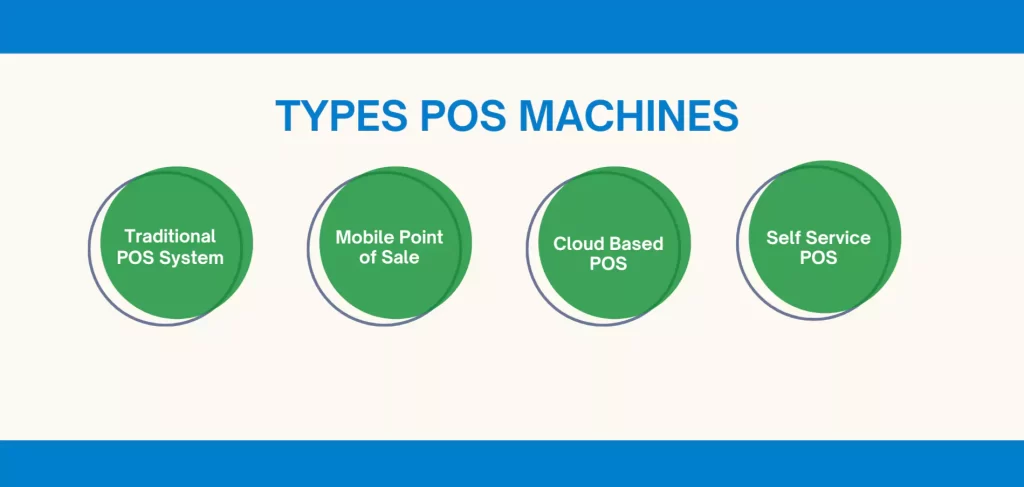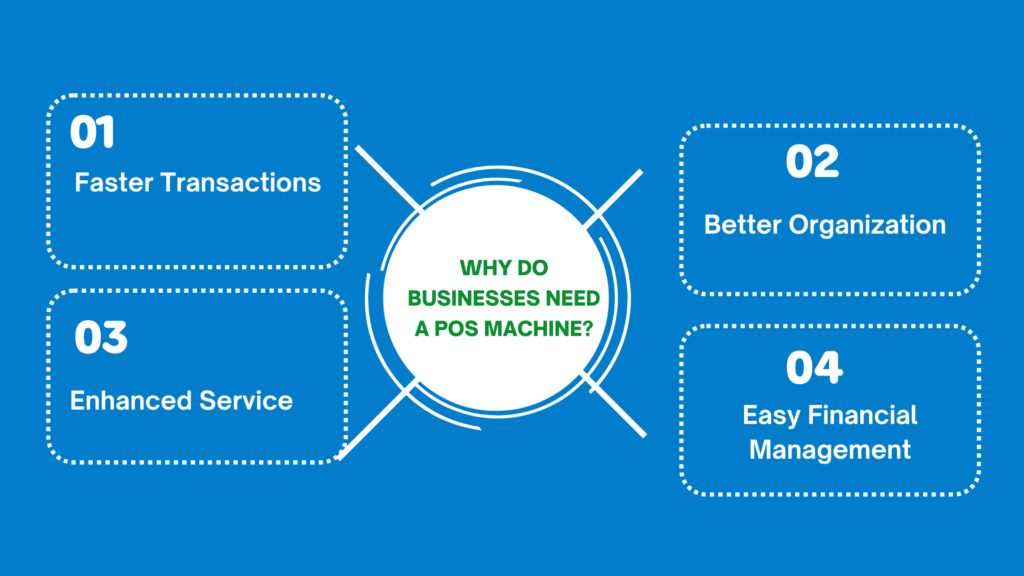Businesses are always evolving to improve efficiency and meet the needs of customers. Point-of-Sale (POS) machines are one of the most essential tools businesses use to ensure smooth operations and transactions. Whether you are shopping in your local store, eating at a restaurant or making an online order, a POS is probably handling the transaction.
What is a POS Machine and why are they so important for business? This blog post will explain everything you need about POS machines, and their role in the modern business.
What Is a POS (Point of Sale) Machine?
A Point of Sale Machine is a device that businesses use to complete sales transactions. The POS machine is a combination of hardware and software which works together to track sales and process payments. Retail stores, restaurants and service businesses use POS machines to process payments from customers.
How Does a POS Machine Work?
POS machines are made up of a number of hardware components such as a cash register, card reader, receipt printer and barcode scanner, which connect to a system software that handles the transaction. This is how it works in general:
- Product Scan: A cashier scans a product’s barcode with a barcode reader or manually enters it into the POS.
- Transaction Process: Calculates the total price including taxes, discounts and fees.
- Payment : The customer may pay in a variety of ways, such as cash, debit/credit cards, mobile payments or digital wallets. Payment is processed by the POS machine.
- Receipt Generating Once payment has been confirmed, the POS system generates a receipt which details the transaction. This is a record that can be used by both the business owner and the client.
Components in a POS Machine
The main components of a typical POS machine are:
- Terminal POS This is where transactions are conducted. It may be a laptop, tablet, or touchscreen monitor depending on your business setup.
- Card reader: This card reader is used to process payments using debit or credit cards. It can support magnetic stripe, chip, or contactless payment methods like NFC.
- Barcode Scanning: The barcode scanner allows the POS system quickly to identify products and register them.
- Receipt Print: After a transaction has been completed, the printer prints a copy of the physical receipt for the client.
- Cashdrawer is used for storing cash payments in a secure manner. It automatically opens when a cash payment is made.
- POS Software : This software is used to manage all aspects of a transaction, such as inventory, customer data and generating reports.
Types POS Machines

There are many different types of POS machine depending on your business needs. Some of the most common types are:
- Traditional POS System This is a classic POS system found in retail and hospitality. This system includes a card reader, receipt printer, and a register.
- Mobile Point of Sale (mPOS) mPOS, or mobile point-of-sale system, is an on-the-go payment processing solution that can be used with tablets and smartphones. This is ideal for small business owners or those who have limited space.
- Cloud Based POS: Cloud POS stores data online instead of on local hardware. It allows multi-location business to have access to their POS system anywhere.
- Self Service POS is becoming more popular among fast food chains and supermarkets. These machines allow customers to perform their own transactions, without needing a cashier.
The Benefits of Using a POS Machine
Using a POS device has several advantages for business, including:
- Streamlined Transactions POS machines are more efficient and reduce customer waiting times, improving the shopping experience.
- Accurate tracking A POS system can track sales, customer information and inventory. This data is used to create reports and analyses for better business decisions.
- Inventory management: POS system automatically updates inventory levels in real time, ensuring businesses know when to reorder and avoid stockouts.
- Improved security: POS systems can process card payments in a secure manner, reducing fraud and theft compared with manual transaction methods.
- Customer insights: Many POS system also offer CRM tools to help businesses gather data about customer preferences and purchases, leading them to more personalized marketing programs and loyalty programs.
Why do Businesses Need a Point of Sale Machine?

Businesses need a POS system for several reasons.
- Faster Transactions POS machines accelerate the payment process and allow businesses to serve customers faster.
- Better Organization : Businesses are better organized with the tracking of all inventory and sales data.
- Enhanced Service: The speed, accuracy and reliability of POS machines leads to improved customer experiences and loyalty.
- Easy Financial Management POS systems allow you to easily track sales, manage cash flows, and create reports for accounting.
How To Choose The Right POS Machine For Your Business
Consider the following factors when choosing a POS device:
- Business size: While small businesses might need only a mobile point-of-sale system, larger businesses could require a robust traditional POS.
- Features Look for features such as inventory management, reporting tools and payment integrations.
- Customer Service: Make sure that your POS provider provides adequate customer service in the event of any problems.
- Cost : Compare prices to ensure that the POS system you choose fits your budget. This includes any monthly subscription fees and setup costs.
Final Thoughts
Businesses that still rely on the manual process for transactions will fall behind in today’s highly competitive market. A Point of Sale machine can help streamline sales, improve inventory management, and enhance customer service. All these are important for growing your business. We offer cutting-edge solutions for POS tailored to the Pakistani market. Contact us if you want to upgrade your operations with a POS system.
